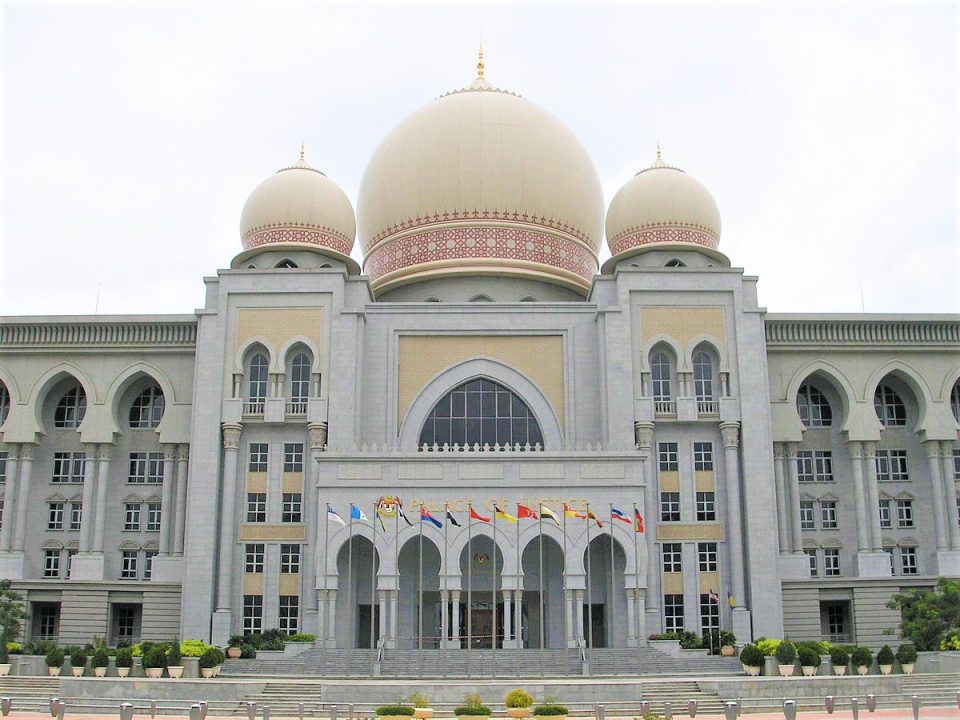PUTRAJAYA, Feb 20 — Two non-governmental organisations (NGOs) today lost their final bid to seek a declaration that the existence and establishment of vernacular schools and the use of Chinese and Tamil languages in those schools are unconstitutional.
A three-member panel of the Federal Court judges led by Datuk Mary Lim Thiam Suan in a 2-1 majority decision dismissed the leave to appeal filed by the Islamic Education Development Council (Mappim) and the Confederation of Malaysian Writers Association (Gapena) against the Appeals Court’s decision on November 23 last year.
This means the Court of Appeals’ ruling affirming the existence and establishment of vernacular schools, and the use of Chinese and Tamil languages in those schools are unconstitutional, stands.
Justice Lim and Justice Datuk Rhodzariah Bujang dismissed the application of both petitioners, while Justice Datuk Abdul Karim Abdul Jalil dissented.
In delivering the majority decision, Justice Lim said the court found that Mappim and Gapena failed to meet the requirements under Section 96(a) of the Courts of Judicature Act 1964 to be granted leave to appeal on constitutional matters that had been amended by the petitioners.
“Therefore, the application for leave to appeal is dismissed with no costs,” she said.
Prior to this, the two NGOs, via their lawyer Mohamed Haniff Khatri Abdulla, submitted eight questions, which consisted of six constitutional questions and two legal questions. However, the questions were later amended, and only one constitutional question was presented to the court.
The constitutional question was whether the medium of instruction in the teaching and learning process in national-type Chinese and Tamil schools, established under Sections 2, 17, and 28 of the Education Act 1996 (Act 550), is an official matter and subject to the obligation under Article 152(1) of the Federal Constitution, which mandates the use of the national language for all official matters.
On December 29, 2021, then-High Court judge Datuk Mohd Nazlan Mohd Ghazali (now Court of Appeal judge) dismissed the lawsuits brought by GPMS, Mappim, Gapena and Isma. GPMS did not file the appeal to the Court of Appeal.
On May 29 last year, then-Kota Bahru High Court judicial commissioner Abazafree Mohd Abbas (now High Court judge) also ruled the existence of vernacular schools is constitutional, dismissing the suit filed by I-Guru.
In their suit, GPMS, Mappim, Gapena, and Isma named several parties including the Malaysian Government, Chinese education groups Dong Zong and Jiao Zong, Persatuan Thamizhar Malaysia, Persatuan Tamilar Thurunal (Perak) and four political parties — MIC, MCA, Gerakan, and Parti Bumiputera Perkasa Malaysia, as respondents.
As for I-Guru, the organisation named the Education Minister and the Government of Malaysia as respondents and sought a declaration that section 28 and section 17 of the Education Act 1996 are inconsistent with Article 152 of the Federal Constitution and it is void and of no effect.
The Chinese Language Council, the Tamil Neri Association, the Confederation of Former Tamil School Pupils, MCA, and Dong Zong were allowed to be interveners in the suit filed by I-Guru.
Isma and I-Guru did not apply for leave to appeal to the Federal Court.
In today’s proceedings, only the United Welfare of Retired Tamil Teachers Association Malaysia, the Chinese Language Council, the Malaysian Tamil Neri Association and the United Association of Malaysian Tamil Students did not oppose the constitutional question by Gapena and Mappim, while 10 other respondents including Minister of Education and the Government of Malaysia opposed.
Earlier, Haniff submitted that the application for leave to appeal involved a matter of public interest that has never been challenged in court by any party since independence.
He said the matter should be brought to the Federal Court so that it could be solved once and for all by the country’s apex court.
“If a decision has been made at the Federal Court, perhaps it will not be challenged again…but if this application is only settled at the Court of Appeal, certain parties may try to challenge it again in court over the next 10 years,” Haniff said.
Meanwhile, senior federal counsel Liew Horng Bin, representing the Malaysian Government and the Education Minister, submitted that there was no merit in the application and both NGOs failed to establish that the case was of public importance.
“I have instructions from my clients to oppose the application as they have a desire to preserve and maintain vernacular schools,” he said.
Counsel Datuk Malik Imtiaz Sarwar, who acted for Chong Hwa Independent High School of Kuala Lumpur said he had received instructions to oppose the question as there is a distinction between a political issue and a legal one.
“It is not necessary for the court to grant permission to hear constitutional issues,” the lawyer said.
— Bernama





